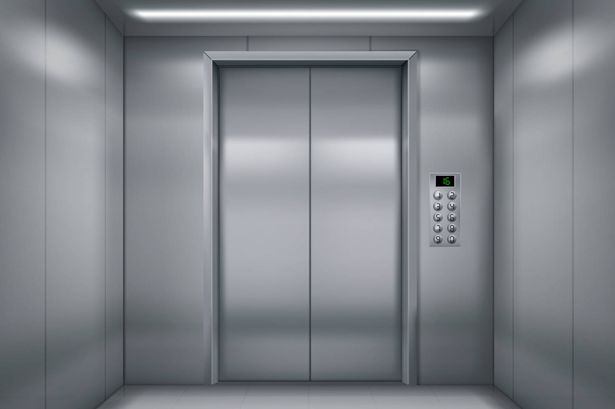World
Doctor Decapitated by Lift in Texas Hospital Tragedy

A tragic incident at Christus St Joseph Hospital in Houston, Texas, has left the medical community in shock after a doctor was decapitated by a malfunctioning lift. On March 15, 2023, Hitoshi Nikaidoh, a 35-year-old surgical resident, was entering a lift on the second floor when the doors suddenly closed, trapping his shoulders. As the lift ascended, he was tragically severed from the neck.
The horrifying accident was witnessed by a hospital worker who was inside the lift with Dr. Nikaidoh’s body for nearly 20 minutes before firefighters could reach them. The hospital spokesperson, India Chumney Hancock, confirmed that the witness received treatment in the emergency room following the traumatic experience.
In the aftermath, the Harris County Medical Examiners initiated an investigation into the circumstances surrounding the incident. Police reported that maintenance crews had serviced the lift just days prior to the accident, and as a precaution, the entire bank of lifts at the hospital was shut down during the investigation.
Dr. Nikaidoh, originally from Japan, relocated to Connecticut with his family as a child. He graduated from the University of Texas-Houston Medical School in June 2003, following in the footsteps of his father, who was also a surgeon.
Investigation Reveals Negligence in Lift Maintenance
The investigation revealed that a misplaced wire in elevator 14 was the direct cause of Dr. Nikaidoh’s death. Reports indicate that if the lift had been correctly configured, only one wire would have connected to a controller stud, allowing the sensors to function properly and preventing the tragic outcome. The misplacement of this wire was identified as a significant example of negligence in the maintenance of the lift.
Chief Elevator Inspector Ron Steele from the Texas Department of Licensing and Regulation found a staggering 22 code violations during his inspection of elevator 14. Alarmingly, the lift was also a month overdue for its annual inspection, raising serious concerns about the standards of maintenance at the facility.
According to data from the U.S. Bureau of Labor Statistics and the Consumer Product Safety Commission, elevators and escalators cause approximately 30 fatalities and injure around 17,100 people each year in the United States. Historically, the first elevator is attributed to the ancient Greek engineer Archimedes, who designed a basic model in 236 B.C.
Safety Concerns and Statistical Context
While elevators are generally considered safe today, issues can still arise. A law firm specializing in safety, Crieff Law Firm, reports that statistically, only one in 12 million lift journeys encounters a significant problem. Most issues are minor, such as unresponsive buttons or sticking doors. In fact, individuals are statistically more likely to suffer injuries from slips and falls on stairs than from elevator incidents.
This tragic event highlights the critical importance of rigorous maintenance practices and regulatory compliance to ensure safety in public facilities. As investigations continue, the medical community and the public await further clarity on how such a devastating accident could have occurred.
-

 Entertainment1 month ago
Entertainment1 month agoAnn Ming Reflects on ITV’s ‘I Fought the Law’ Drama
-

 Entertainment2 months ago
Entertainment2 months agoKate Garraway Sells £2 Million Home Amid Financial Struggles
-

 Health1 month ago
Health1 month agoKatie Price Faces New Health Concerns After Cancer Symptoms Resurface
-

 Entertainment2 months ago
Entertainment2 months agoKim Cattrall Posts Cryptic Message After HBO’s Sequel Cancellation
-

 Entertainment1 month ago
Entertainment1 month agoWhere is Tinder Swindler Simon Leviev? Latest Updates Revealed
-

 Entertainment2 months ago
Entertainment2 months agoMasterChef Faces Turmoil as Tom Kerridge Withdraws from Hosting Role
-

 Entertainment3 months ago
Entertainment3 months agoSpeculation Surrounds Home and Away as Cast Departures Mount
-

 World1 month ago
World1 month agoCole Palmer’s Mysterious Message to Kobbie Mainoo Sparks Speculation
-

 Entertainment1 month ago
Entertainment1 month agoITV’s I Fought the Law: Unraveling the True Story Behind the Drama
-

 Entertainment3 weeks ago
Entertainment3 weeks agoCaz Crowned Winner of The Great British Sewing Bee, Overjoyed by Triumph
-

 Entertainment2 months ago
Entertainment2 months agoAldi Launches Cozy Autumn Fragrance Range Ahead of Halloween
-

 Entertainment2 months ago
Entertainment2 months agoMarkiplier Addresses AI Controversy During Livestream Response





















